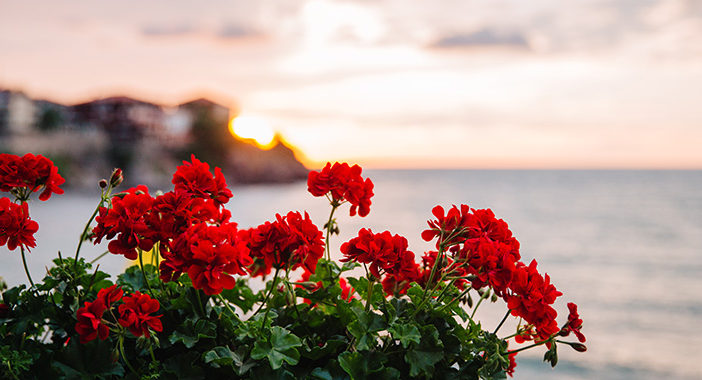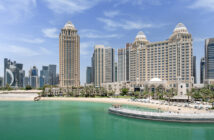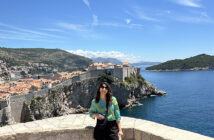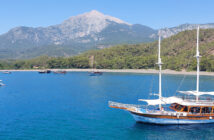BY ROSITSA DOROVSKA
Photo credits to Gancho Churkov
Nestled in the eastern portion of the Balkan Peninsula in southeastern Europe is a country known for its rich history and diverse tourist sites. Gifted with four seasons, you can go from basking in the sandy beaches to swimming in the hot springs to skiing in picturesque mountains during winter. Discover Bulgaria, a country worthy to be your next travel destination.
What is common between Saudi Arabia and Bulgaria? You might be surprised to learn that the answer is the rose. The 30-petal damask rose, Rosa damascena trigintipetala, that grows generously in Taif is identical to the famous Bulgarian strain from the region of Kazanluk. Both rose valleys hold their own rose festivals at the end of each harvest season, when people would celebrate the transformation of the blooming roses into the precious rose oil, widely used by the medical, cosmetics and perfume industries. Saudi farmers already benefit from the knowledge of their Bulgarian colleagues after visiting the Institute of Rose and several distilleries last summer. The ancient and sacred process of distillation is well known and practiced from Kazanluk to Taif and is only one of the prospective fields of cooperation between Bulgaria and Saudi Arabia.
This year marks the 25th anniversary since the establishment of the diplomatic relations between the Kingdom of Saudi Arabia and the Republic of Bulgaria. In 2017, the Prime Minister of Bulgaria, Boyko Borisov was officially welcomed to Riyadh by The Custodian of the Two Holy Mosques, King Salman bin Abdulaziz Al Saud, on what happened to be the first high ranking meeting of a Bulgarian governmental representative with a Saudi monarch. Following the agreements for enhancing the mutual cooperation signed during the visit, at the beginning of 2019, the first Embassy of the Republic of Bulgaria started operating at its premises in the Diplomatic Quarter of Riyadh.
During this time, a number of bilateral visits were exchanged. The Bulgarian Ministers of Tourism and of Agriculture, Food and Forestry were hosted in Riyadh. Later on, a Saudi – Bulgarian business forum led by the Bulgarian Minister of Economy, was held at the Council of Saudi Chambers. For the first six months of 2019, the Bulgarian export to the Kingdom saw an increase with 60% compared to the same period in 2018. In September 2019, a Saudi business delegation also paid a visit to Bulgaria to explore investment opportunities. Saudi Arabia’s Minister of Foreign Affairs, Prince Faisal bin Farhan bin Abdullah was on his first official visit to the capital city, Sofia, at the beginning of 2020. He met with his homologue, Minister Ekaterina Zaharieva, along with Prime Minister Borisov and the President of Bulgaria, Rumen Radev.
The relations were boosted with the agreement for the avoidance of the double taxation signed in 2017 and with the nomination of the Saudi – Italian Arkad Consortium as a contractor for building the gas transmission network extension — the Balkan stream line or “Turkish stream.” Negotiations for a direct flight link between the countries are also underway.
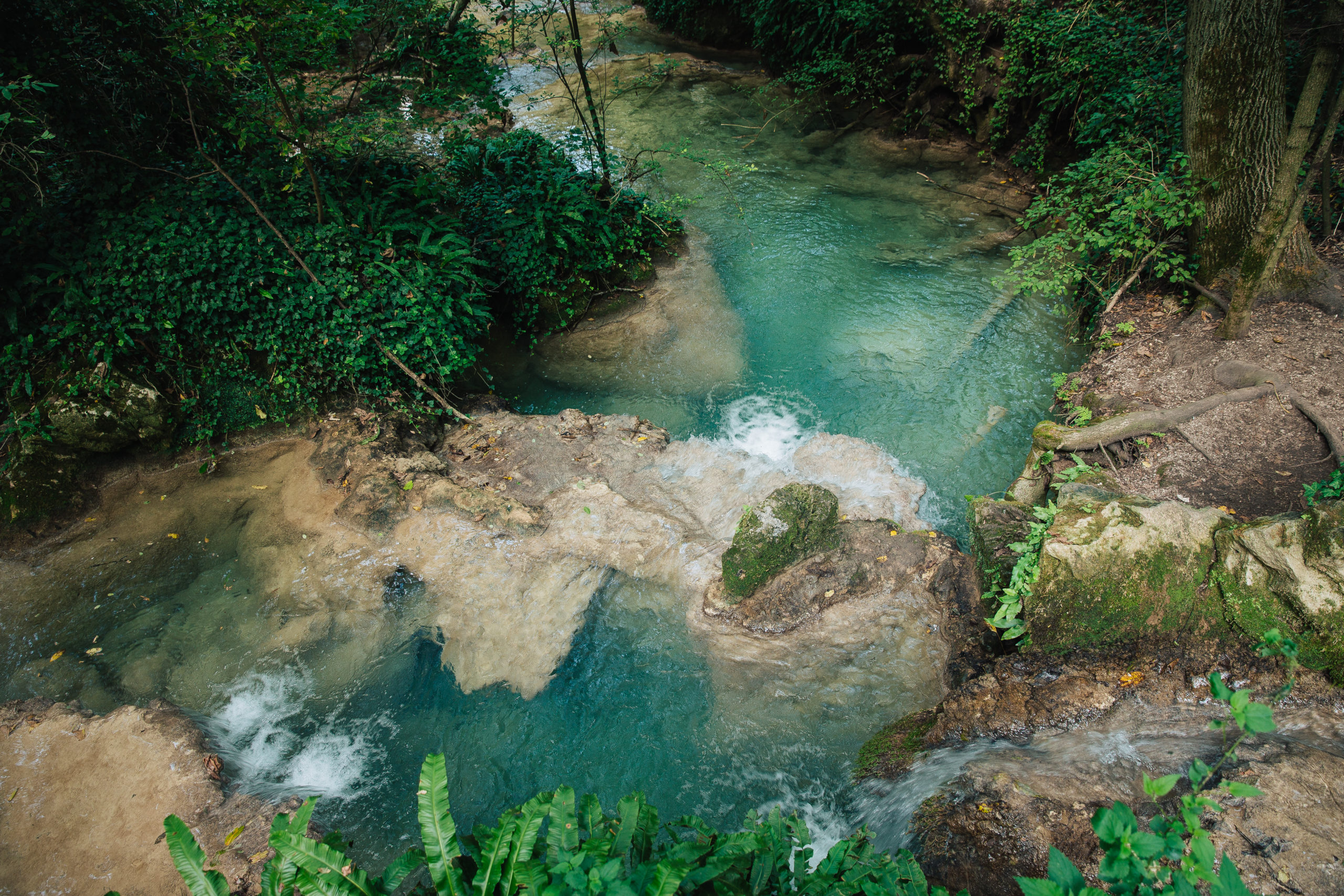
Bulgaria is a firm supporter of the Crown Prince’s Vision 2030 and the dynamic reforms happening recently in the Kingdom. The long-awaited opening of Saudi Arabia for tourism and entertainment already attracted some Bulgarian artists like the folk dance ensemble “Sharena Gaida” during the festival, Nomad Universe, hosted by Saudi Arabia last year. Bulgarian artists and singers were invited to the recent edition of “Winter at Tantora” in Al Ula to share their know-how and to discuss future cooperation opportunities. The Director of Sofia Opera and Ballet, Academician Plamen Kartaloff was amongst them. He is the mastermind behind the annual summer festival “Opera of the Peaks”, taking place under the natural phenomenon – Belogradchik rocks in Northwestern Bulgaria. The sandstone and rock formations are quite similar with the scenic views of Al Ula.
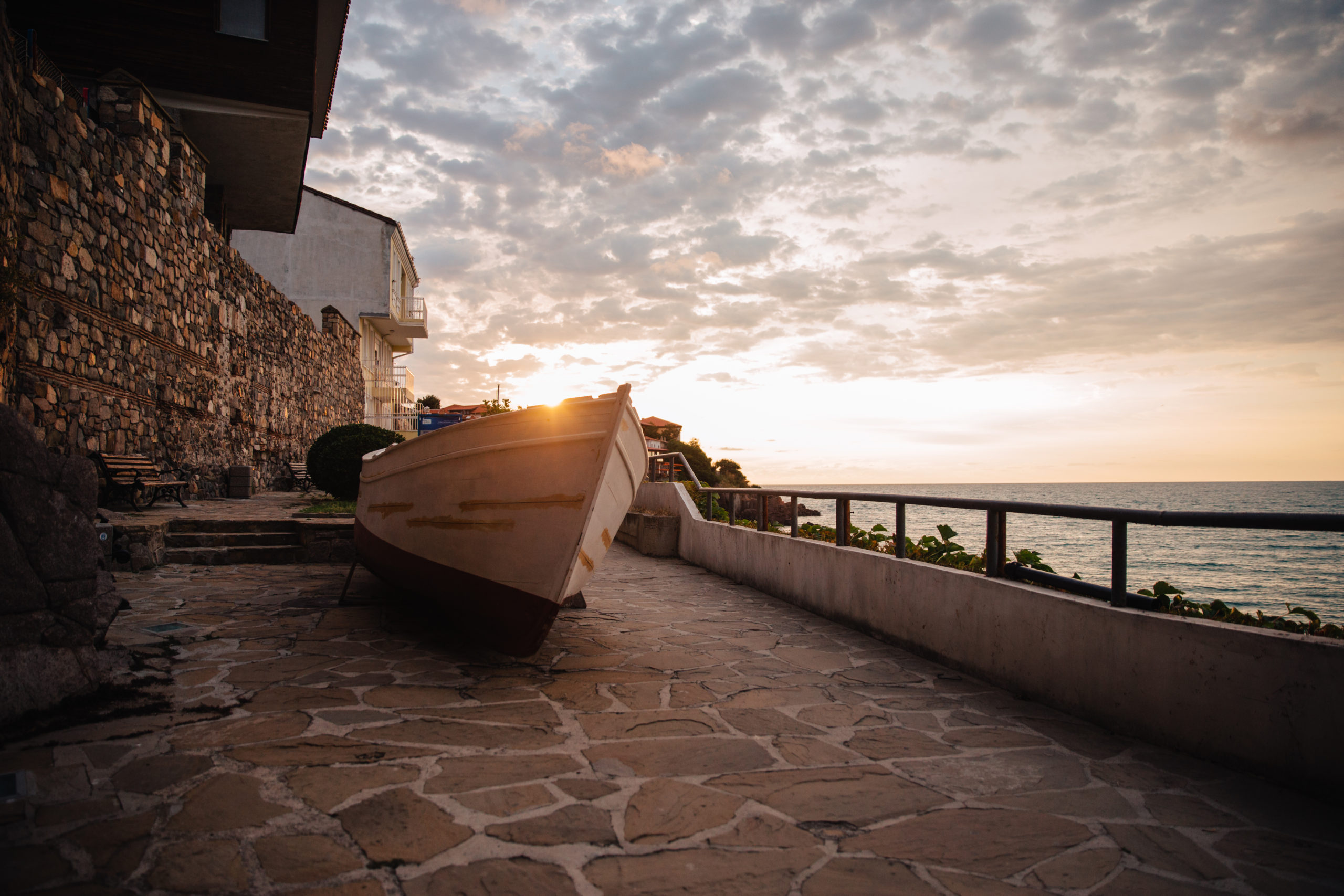
Besides spectacular rocks, Bulgaria has great sandy beaches to offer. The Black Sea Coast attracts many tourists every summer, with its vibrant cities and resorts, with cosy villages or wild spots, from luxury hotels to campsites.
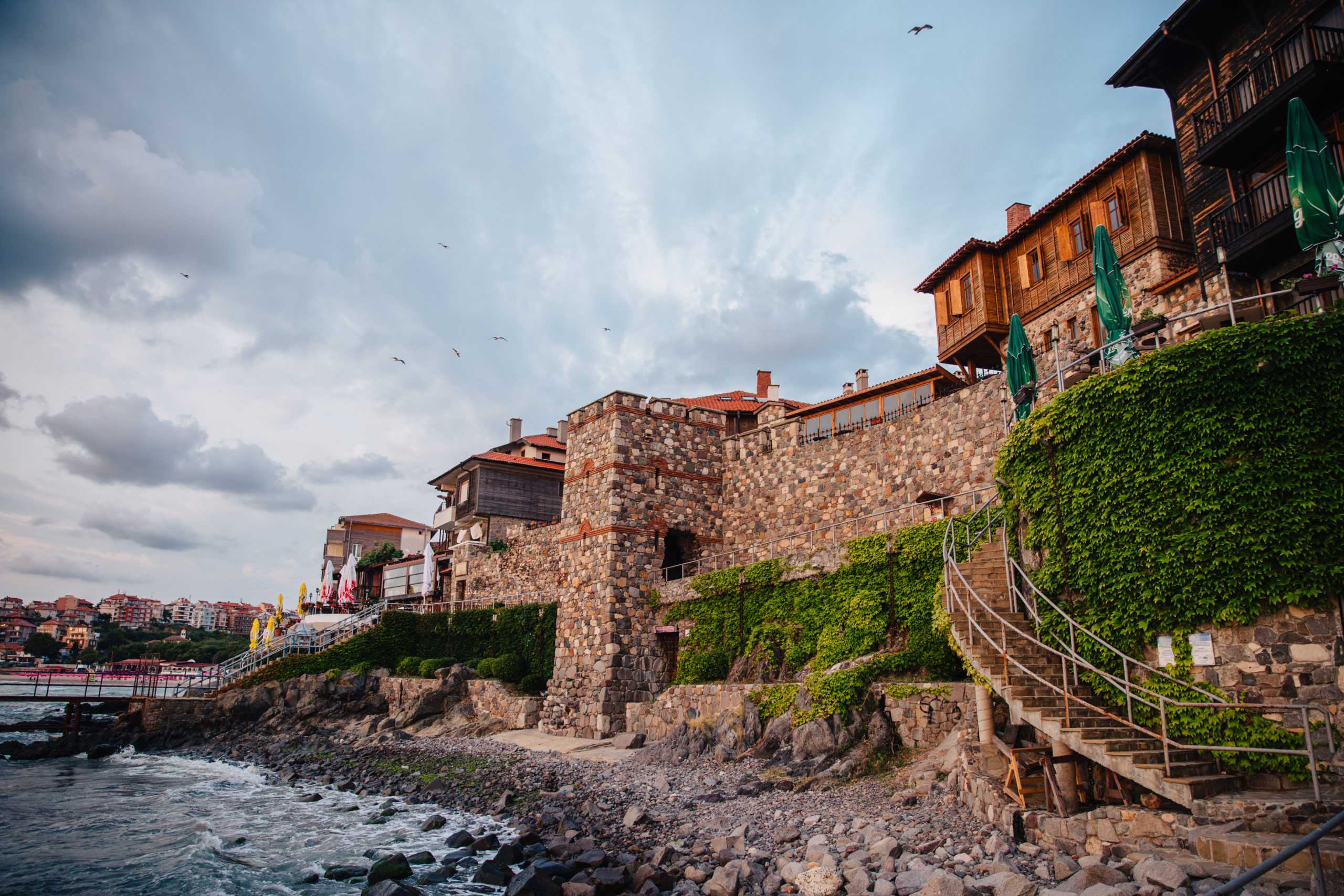
Graced with four seasons, Bulgaria is worth visiting all year round. It is a perfect ski destination with picturesque mountains and well maintained slopes for a quality winter break. Rich with hot springs, the country is ranked among the firsts in Europe in terms of diversity of hydrothermal waters and bioclinical treatment resorts, like the famous “SPA city” of Velingrad.
Being one of the oldest countries in Europe, Bulgaria is a must-see for travellers, with historical sites (ten of them listed as UNESCO world heritage sites), treasures and artifacts, literally everywhere.
For visa information and other queries:
Embassy of the Republic of Bulgaria to Saudi Arabia
Social Media: @BulgariaSaudi
Email: embassy.riyadh@mfa.bg
Contact No.: 011 251 1553
Where To Go
Seven Rilla Lakes, a group of seven glacial lakes, situated in the northwestern Rilla mountain, is one of the most visited tourist sites in Bulgaria. Each lake has a name according to its shape or characteristics including Lower Lake, FIsh Lake, Eye Lake, Twin Lake, etc.
The northern city of Balchik, lying on the Black Sea coast, has been a favorite residence for Queen Marie Alexandra Victoria of Romania. Famous Italian architects were hired to create the complex, consisting of a palace, chapels, watermills, fountains, wells, and a botanical garden, which has over 2000 plant species.
One of the oldest cities in Europe, Plovdiv is a must see for many reasons. Known as the European capital of culture for 2019, the town is packed with ruins, artifacts and cultural events. “Kapana”, literally translated “the trap”, will captivate you in a maze of small streets, where galleries, art shops and restaurants are intertwined.
Going southwards, one cannot miss the ancient city of Nessebar. The old part of the city lies on a peninsula, previously an island, while the new one with plenty of hotels is situated on the mainland. With more than 3 millennia-old history, the city is known as “The Pearl of the Black Sea”.
Sofia, the largest town in Bulgaria is at the foot of Vitosha mountain and on the crossroads between Asia and Europe. With 7000 years of history, Sofia has plenty of museums, archaeological sites, hot springs, and entertainment areas.
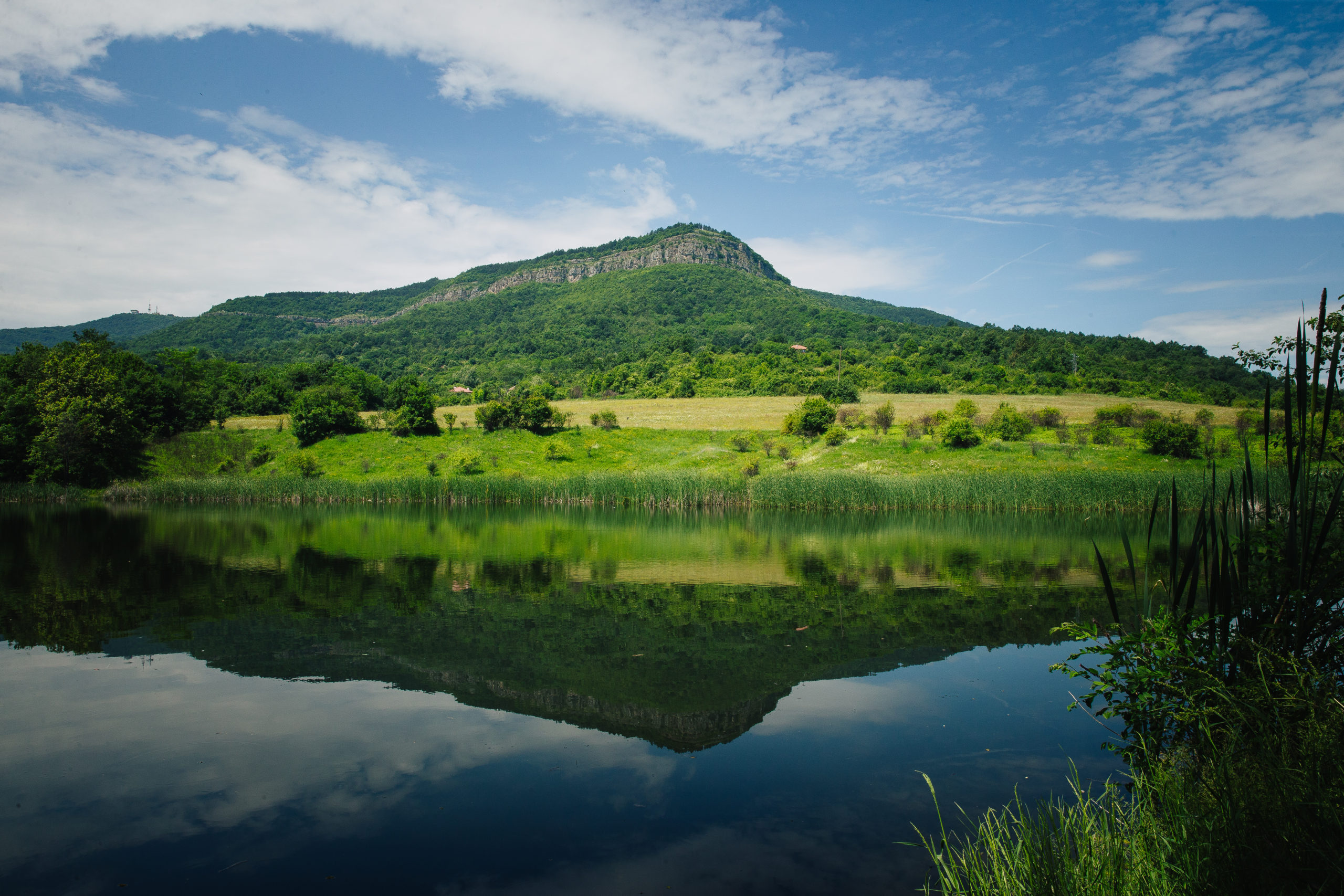
What To Do
Rent a car and explore the seaside. The entire eastern part of Bulgaria stretching from the Romanian border to Turkey has ever-changing landscapes and picturesque views, rocky highlands, mountains, surrounded by lush lavender and sunflower fields. The Black Sea coast has a variety of small villages, major towns, resorts and wild beaches with the finest sand in Europe and breathtaking panoramas.
Unwind in the mountains. Perfect for hiking, skiing during the winter or just for relaxing, the Bulgarian mountains are waiting for you. From the highest peak on the Balkan peninsula (Musala 2925m), through the long Balkan range, crossing the country in the middle, to Vitosha, adjacent right next to the capital, each mountain has its own nature and spirit.
Bulgaria is perfect for extreme sports lovers. Whether you are into climbing, rafting, snowboarding, paragliding, kitesurfing, the country provides good conditions for each adventure.
Get the best from Bulgarian mineral waters. The country is leading in spa services, blessed with more than 600 healing hot springs. Try the famous mud baths in Pomorie, a city on the Black Sea shore known for its detoxifying lye.
Try the local delicacies! Bulgaria is known also as “ the garden of Europe”. With suitable climate and soils, the country is rich with many fruits and vegetables, not to mention its world renowned yogurt and honey. Recently, the country is one of the biggest exporters of lavender and truffles.

